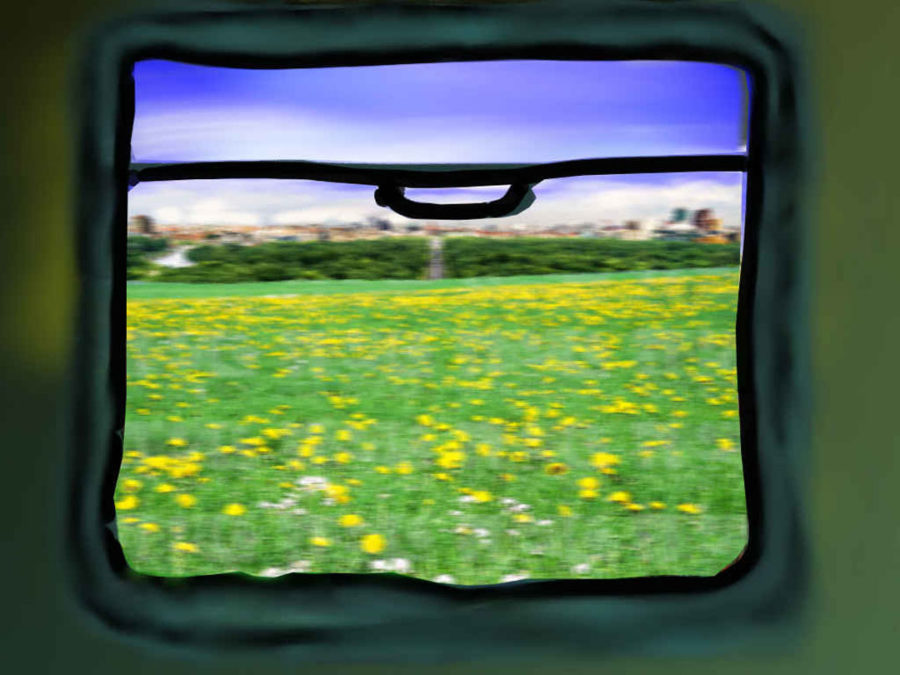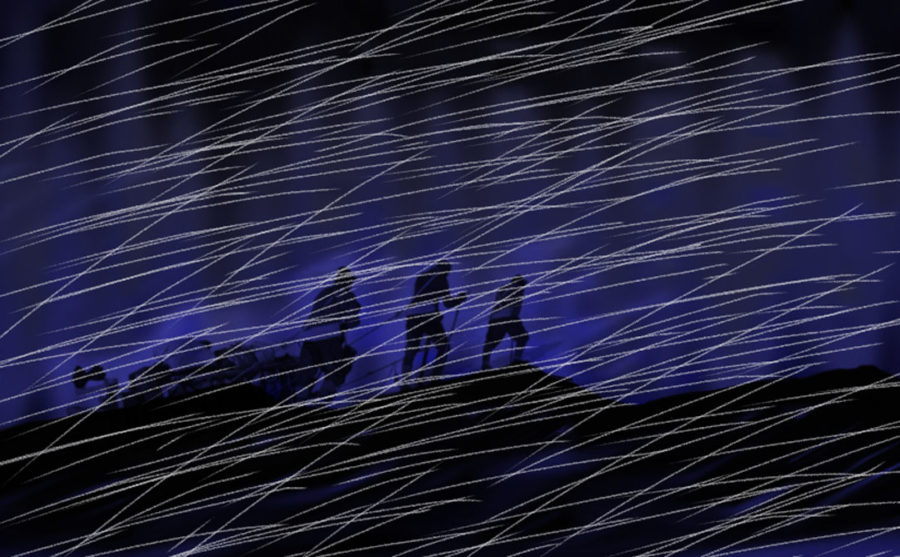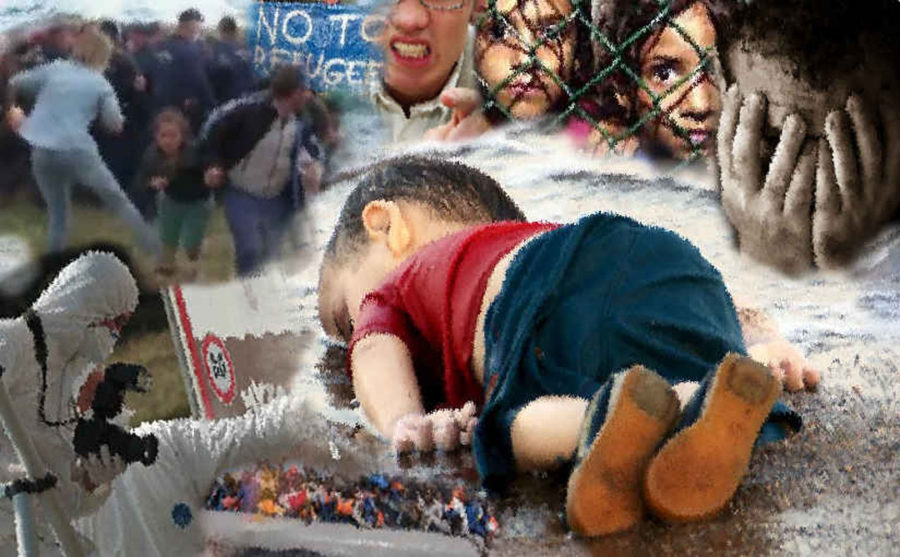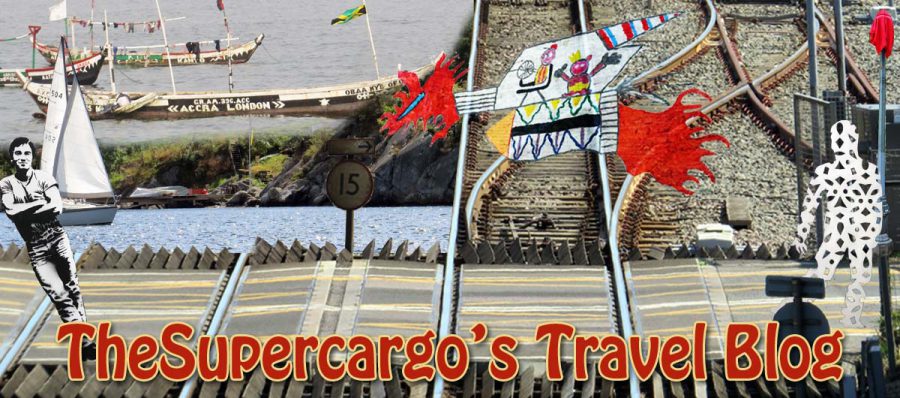What is the worst journey you have ever made? Recent events, public and private, have got me thinking about my own worst journeys and the concept of a bad journey. (And I should point out that some of the following may not be for the squeamish — or for people eating a meal.)
The Worst Journey in the World
In 1922 Apsley Cherry-Garrard published The Worst Journey in the World, a masterpiece of travel writing which I believe has never since been out of print. It is the account of the 1910-1913 Scott expedition to the Antarctic of which Cherry-Garrard was one of the survivors. That was a pretty dreadful journey, no question, but “the worst in the world”?
Good or bad, best or worst, these are subjective judgements. What’s good for you may not seem so great to me. What’s bad for me might seem a walk in the park next to Cherry-Garrard’s winter journey. I’ve not struggled through a screaming blizzard in the pitch black Antarctic night. Nor have I experienced any temperature below -30° for any significant time in order to “acquire for science” (i.e. steal) some Emperor penguin eggs. I have not then failed to rescue my fellow explorers, leaving them to die of cold or starvation just a few kilometres away. I can agree, that must have been pretty bad. My worst journey doesn’t compare objectively. But it happened to me and subjectively it was so bad I still measure all my bad journeys against it.
It started well enough in the summer of 1995. The school year was over in Sweden and I’d been working in Poland, helping out on a training programme for Polish teachers of English. I was making my way back to England to visit my mother in Brighton. The weather was fine, the sun was warm and the fields and even the old industrial towns of Poland and eastern Germany were smiling. I took the train from Warsaw to Berlin where I broke my journey to be a tourist.
A chicken dinner in Berlin
It was not quite five years since East and West had been reunited, just over five years since the fall of the Wall. Berlin was filled both with reminders of the Cold War division and the rubble and reconstruction that was replacing them. I particularly remember taking the U-bahn to Potsdamer Platz, which had been one of the East German ghost stations.
I got off the train and walked through what felt like a labyrinth of temporary passages and steps up to the surface to find myself in the middle of one massive building site. But I also walked under the linden trees, through the Tiergarten, central Berlin’s fantastic park. The summer sun filtered down through the leaves of the trees on the families spread on the grass with their one-time barbecues and picnic blankets and children playing. There was hope in the air.
That evening I ate a chicken dinner at a fast food restaurant near my hotel. As it happened, not a good choice. I wasn’t going to sleep long as my train was starting early. Maybe being a bit nervous about missing the train kept me awake and interfered with any messages my stomach might have been sending me, because I don’t remember feeling sick until the train was underway.
It was one of those trains that pick up and drop off carriages en route. I think its final destination may have been Paris, but my carriage was going to the Hook of Holland where I had a ticket for the ferry to Harwich. It was a long journey through similar bucolic countryside and historic urban centres as the earlier train from Warsaw. And all bathed in the same gentle June sunlight. But I was not in a state to enjoy it.
From Berlin to the Hook
Soon after we left Berlin my stomach started cramping and I found my way to the lavatory. This being a German train the lavatory was clean and functioning. I was to test it considerably during my journey, but it never failed me.
I started the journey in my seat, but I ended it, certainly the last few hours, standing as close as possible to the lavatory. In the corridor by an open window, gulping fresh air and holding on to the wall. I was hoping I wouldn’t fall, wouldn’t shit myself and that the train wouldn’t be delayed.
So relieved was I when we arrived in Hook on time that I almost convinced myself I was feeling better. I carried my bags from the station to the ferry terminal (not a great distance) with some confidence. After boarding the boat, however, I realised I was in a cold sweat and my legs were shaking. Seven hours at sea? I had my doubts.
From the Hook to Harwich
I had recently agreed to my bank’s suggestion and invested in a Visa credit card. My first credit card. Oh, how I appreciated that! This was an afternoon crossing, so there were cabins available and I was able to book one — all for myself — and with a bathroom en suite. I spent the entire trip stripped to my underwear (when the fever was hot) or wrapped in a blanket (when the fever was cold), lying on the bunk or squatting on the toilet or (a new development) vomiting into the toilet bowl. To be honest, by now I really didn’t have much left in me to evacuate, but my body was determined to do its best.
It was now that I realised I was passing blood. I’m not sure when that started, but I remember observing it with a kind of detached resignation. I knew it wasn’t a good sign but I was beyond caring.
Before the ferry reached Harwich I took a shower, dressed and tried to make myself look as normal as possible. Importing a deadly virus into England? Me? Good heavens, no officer. Just a little under the weather.
But nobody was interested.
From Harwich to a doctor in Brighton
I boarded the London train. There I was immediately reminded of the difference between German and British trains. This was at the very beginning of the disastrous privatisation programme that destroyed British Rail. At this point the London-Harwich line was still part of the demoralised and deliberately underfunded though still state-owned Network South-East. The underfunding was reflected in the absence of electricity, water or toilet paper in the train’s lavatories. One of which I nevertheless took possession of.
Night was upon us. I have an abiding memory of the lights from one station after another strobing past through the frosted glass window and sporadically illuminating the interior of my smelly cell. I found hooks to hang my luggage on and I wiped off the toilet seat as best I could. It was fortunate I had packets of paper tissues bought on the boat. The toilet bowl, though encrusted, was empty. It was of the “not to be used while the train is standing still” variety — old-fashioned even in 1995. The sort that opened to drop deposits on the tracks beneath. I locked the door, and I don’t remember anyone hammering to get in. So I coped, and the train eventually pulled into Liverpool Street station.
Then all I had to do was get across London on the toilet-less Underground, catch a train to Brighton and finally take a taxi home to my mother’s. Two and a half hours, tops.
The following day Mum took me to visit her doctor who diagnosed dysentery, but not amoebic dysentery (which was good news). And then I was able to spend the next eight or so days recovering.
Less than the worst journey in the world
That was and remains my worst journey. I don’t think you’ll disagree with me that it was a pretty bad experience, but let’s reflect a little on what makes it nevertheless something less than a really bad journey. Less than the worst journey in the world.
Although the journey itself was awful, much that surrounded it was rather good. It was a journey I had chosen to make. That I had planned in comfort and organised myself. I was satisfied with my contribution in Poland and I enjoyed the journey from Warsaw. Berlin was interesting. I had tickets and credit to get me across Europe in relative comfort despite my illness, and a legal right to travel (despite my slightly feverish concern about being identified as the vector of a pandemic).
Above all, I had a home to run to and someone waiting for me who, while it might not have been the thing she most wanted to do, was still prepared to take me in, look after me and get me medical attention.
Cherry-Garrard’s journey
Apsley Cherry-Garrard had a worse time than me, no question. He ended up feeling at least partly responsible for the deaths of Scott and the other expedition members. Also, those Emperor penguin eggs which it had been so important to collect that he’d given up more than three years of his life? They turned out, when he returned, to be no longer of any scientific interest. (The Natural History Museum in Kensington still has them though.)
Nevertheless, it was a journey he had wanted to take, he wasn’t forced to take it. The life he left behind he could pick up again when he returned and (as I think you can tell from his name) that life was not your common or garden lower class existence. (To be sure, the First World War came along and spoilt things, but that tragedy lies outside the scope of Cherry-Garrard’s journey, and outside the scope of the point I’m trying to make.)
Really the worst
So let’s think of a journey that really could be described as the worst.
Not only would the actual journey have to involve a series of horrible incidents, terrible travelling conditions, lack of water or food, exhaustion, illness and perhaps actual physical violence and/or convoluted bureaucratic hoop jumping. It would also involve surrendering yourself into the hands of strangers, perhaps professional smugglers, perhaps incompetent do-gooders, perhaps unscrupulous money grubbers. Not only that, it would also have to have an element of moral peril: you yourself would have to put another person or people at risk, perhaps friends, perhaps relatives, perhaps the one person dearest of all.
More than this, the journey would have to be involuntary, not chosen for adventure but forced by circumstances. Or chosen perhaps as the least worst of a series of bad options. And there would have to be an element of irony (this is a post-modern story it seems), so let’s imagine that journey’s end is in a country which is either directly or indirectly responsible for the circumstances at home precipitating your journey.
And to add to the irony, let’s include the fact that all your life savings — a fraction of which would have bought you an airline ticket to fly you to your destination — must instead be spent on the journey you are taking by land and sea because the country to which you are fleeing (which may accept that you have a legitimate cause to seek asylum once you get there) has made it impossible for regular airlines to let you buy a ticket or board a plane so you could travel quickly and in safety.
At the end
And at the end, what?
Not a homecoming. Not a welcome, not safety and security, but the coldness of strangers, hostility and mistrust. To such a degree that the dead lost along the way, the children drowned at sea, the mothers and fathers suffocated in the back of a lorry, the sisters crushed beneath the wheels of trains, the brothers frozen to death in the undercarriage of high flying passenger jets, all these seem to be happier for no longer having to suffer.
Now, that. That would be the worst journey in the world.
The worst journey in the world (redux)
I wrote and published this article originally in my separate Stops and Stories website. It’s just about 3 years old. It was inspired in part by the wave of refugees from Syria, Iraq and Afghanistan that tried to reach what they believed would be safety in Europe that summer. Also in part by news film of dead bodies washed ashore, especially on the tourist coasts of Greece and Turkey, and by reports from “The Jungle”, the notorious refugee camp near the Eurotunnel entrance in northern France.
“The worst journey in the world” was always going to move here to TheSupercargo main site eventually, but I didn’t plan to republish it as if new. That I do so is partly force of circumstance. But also because, when I read it through, it seemed no less topical today than when I wrote it.
Three years on, people are still fleeing war, famine and misery; still drowning in the Mediterranean. The EU, its member states and its citizens still haven’t agreed a solution. Instead we seem more polarised than ever. Certain member states are doing their damnedest to prevent any amelioration of the EU’s policy – even that little softening that some other states are willing to accept. In many countries of the Union, extreme political forces have battened on to our discord and our fear and turned it into an effective recruiting device. There’s always someone, it seems, prepared to make capital from another person’s misery.
Questions
If more of us were to put ourselves imaginatively into the position of one of the migrants, would we not, from empathy and sheer humanity, seek to save them? Save more of them? Save all of them?
Writing the above, I remembered my own worst journey. What was your worst journey? Would you willingly put yourself through it again?
I’m also publishing this article for the #Blogg52 challenge. And as I already published it for Blogg52 on 9th September 2015, I apologise for repeating myself!








So well written John. It could have been, should have been in a newspaper.
Thanks Eva. I’m getting better! 🙂
Du skriver bra John. Levande och genomarbetat. Jag tyckte synd om dig men kände sorg för de som verkligen var på den värsta resan i livet.
Ha en fin dag Where ever you are!
Det var det jag hoppades för, Anna. Tack.
Vilken berättelse och vilket avslut. Sitter här tårögd. Du är en underbar författare!
Kram Kim
Tack Kim, dina ord betyder mycket!
Wow! Du skriver så att jag är där och upplever allt det hemska. Fantastiskt bra inlägg!
Kram Kim
Tack Kim! Hoppas att ser dig under Göteborgs Bokmässan denna vecka.